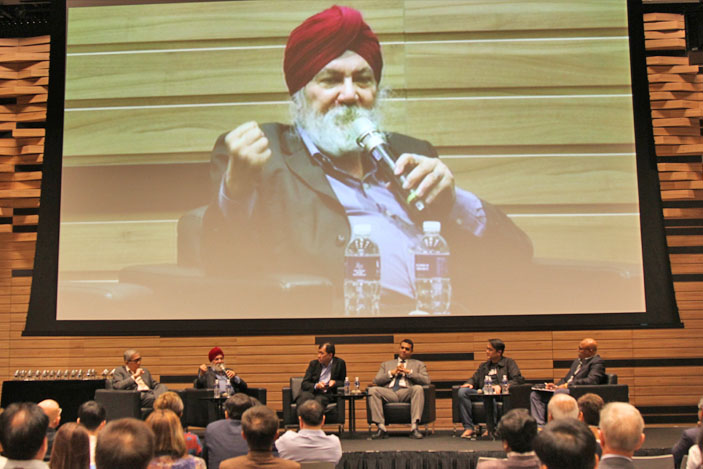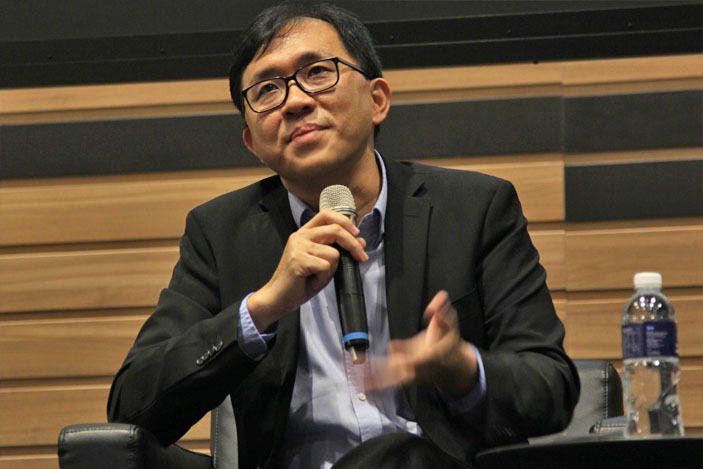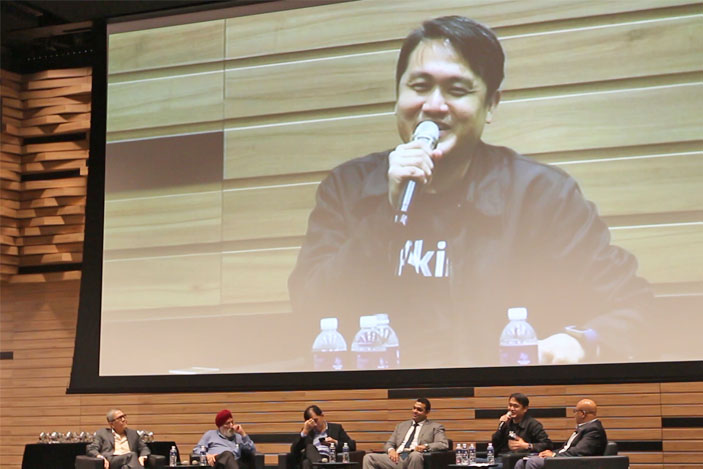IT WOULD seem that Singapore’s stock market (SGX) needs all the help it can get.
Even though the Straits Times Index is close to all-time highs, there is trouble festering within, as is reflected in the spate of delistings in the last two years.
The situation calls for all stakeholders to rally together to change the narrative of the market from one that is depressing, to one that is more upbeat.
 This was what the recent inaugural Charger Award tried to do, and went some way in succeeding in its quest as it injected new trains of thought to the equation. The panelists who were convened for the event offered a refreshingly non-mainstream view of the problems that Singapore’s economy is facing.
This was what the recent inaugural Charger Award tried to do, and went some way in succeeding in its quest as it injected new trains of thought to the equation. The panelists who were convened for the event offered a refreshingly non-mainstream view of the problems that Singapore’s economy is facing.
It should be noted that stock markets are typically leading indicators of the health of a local economy. But with years of quantitative easing making price discovery very difficult, the relationship between stock markets and economies around the world, including Singapore, are not as straightforward now.
Held at the new School Of Law of Singapore Management University (SMU), where the red-bricked National Library used to stand, there were three threads of thought worth highlighting, among many others. Further details of the proceedings can be found in STORM.SG.
1. Rattling The Conformist Cage
First, Professor Kirpal Singh, who was to retire from SMU the very next day after a long and illustrious career, talked about how SMU was such an upstart at its inception that it advertised on the back of buses. This initially drew ridicule from the big boys in the block, the National University of Singapore (NUS) and the Nanyang Technological University (NTU), but eventually they started to advertise on buses too.

SMU rattled the foundations of tertiary education in Singapore with its entrepreneurial stance and took tertiary education to a new level.
It is arguable that the recent high QS World University rankings of NTU and NUS can be partly attributed to the entrepreneurial spirit that was sparked by the arrival of SMU.
NUS and NTU may have studied the criteria that university rankings set out as requirements and have tried to tick as many boxes as possible over the years.
You might also want to read:
Charger Award — Winners’ Views
Charger Award — Tips And Theories
2. Tuas Megaport — Ships In The Night?
Second, Ku Swee Yong, chief executive of International Property Advisor, talked about China’s disintermediation of the region with its investments in port facilities around the Indian Ocean. The growing competition will lower costs and the different countries involved, including Malaysia and Thailand, will strive to become more efficient in their utilisation of port infrastructure. He worried about how the upcoming megaport in Tuas would fare against this backdrop of regional port developments.

The question is can a megaport in Tuas succeed? This is a hard question to answer because Singapore’s port remains pre-eminent in the region, and China’s investment in regional port infrastructure is still in the relatively early phase. However, other ports are catching up with Singapore in terms of technology and infrastructure, and can potentially offer cheaper port services, too.
Meanwhile, land transport facilities are also being developed by China to complement port facilities in different parts of the region.
All these developments point to a different transport and logistics paradigm that potentially marginalises Singapore by the time the Tuas megaport is up and running.
It has to be hoped that planners in Singapore have devised contingency plans that factor in a potential new paradigm.
3. Understanding Company Behaviour
Clemen Chiang of Spiking talked about the usefulness of tracking what big investors are buying in stock markets, including purchases of stocks by individuals who started firms. That is what his smart app, Spiking, enable users to do. Tracking the purchases of such investors from SGX filings can offer clues about whether there is big news ahead about a company in terms of a delisting or a merger and acquisition.

No doubt, such a tool is useful. Retail investors will always do well if they track what the big boys are doing even though they may be a bit late onto the scene. The term “big boy” applies not only to individual investors but big stakeholders too like sovereign wealth funds and pension funds. You have to think that such sophisticated investors know what they are doing as they are handling public monies.
However, when those who founded firms start to buy back their own firms’ shares from the market, some caution is needed as well.
They could feel that the share is undervalued and take the low price as a chance to reduce the number outstanding shares, raise the share price and, in turn, push up the earnings-per-share metric. This is done a lot, especially in the United States, as it has a positive impact on bonus payments.
On the other hand, when shares are bought back, it could also mean there are no investment opportunities left out there to put money into. A company with a reserve of cash and nothing to invest in may appeal to private equity investors but is bad news for the sustainability of its business.
When cash-rich firms can’t find new growth opportunities to invest in, therein lies the problem for the broader economy.
Thus It Was Unboxed by One-Five-Four Analytics presents alternative angles to current events. Reach us at 154analytics@gmail.com
 Main Image: Banana Republic images / Shutterstock.com
Main Image: Banana Republic images / Shutterstock.com



















